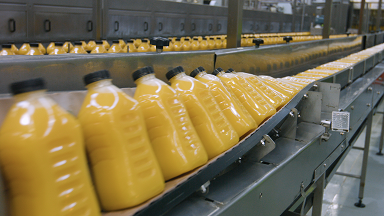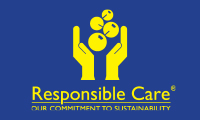Coca-Cola Amatil’s latest manufacturing facility is equipped with leading technology and processes to continue its award-winning health and safety policy.
Health and safety is obviously important at Coca-Cola Amatil’s (CCA’s) new Keri juice plant in Mangere, south Auckland, which can produce up to 800,000 bottles a day.
The $30 million plant on the 12,000-square-metre site near Auckland International Airport that opened in September will produce nine Coca-Cola-owned juices, flavoured waters, cordial and sports drinks.
Combining four sites into one and doubling production, it features new technology such as nitro hot-fill, a New Zealand first for use in bottle production, and sustainable packaging that cuts plastic waste by reducing bottle weight by 29 percent.
The new plant will continue CCA’s proven six-year approach to ensuring ‘Zero-Harm’ is a core driver of its health and safety policy because the company appreciated that people are at the core of its business, says national health & safety manager Susan Lahood.
“Chris Litchfield (MD of CCA NZ) is focused on the importance of caring about our people; what we do along with our health and safety initiatives stem from this belief”.
The company is working hard toward achieving the government’s 2020 target of a 25 percent reduction in workplace injury, and is on the right path with no reported loss-time injuries during the new juice plant’s 14-month construction.
The project team responsible for the development of the state-of-the-art juice plant had a health and safety focus from the onset of the project and was supported by a safety advisor who was on site daily.
“At the initial concept stage of the project’s development, it was important to bring the health and safety team onboard to develop their programmes,” Lahood explains. “Being involved from the start ensured all health and safety considerations were taken into account very early on.”
Once the plant was in operation all staff went through several weeks of training before their actual start date.
“We held sessions around behaviour, about manual handling and we put everyone through their forklift licences again, in addition to being trained on the new machinery,” Lahood adds.
The company went above and beyond compliance and instead focused on what was best for their people, putting the emphasis on staff and how to keep them safe rather than simply following requirements.
CCA “personalises safety”, Lahood says. “This stems from the insight that, we all have our reasons for going home safe whether it be for our friends, partner, children or family,” she explains. “By personalising safety, our people organically become more aware of its importance within the workplace.”
One of the workshops run by CCA health & safety team involved staff putting pictures of their families or friends onto a board to highlight what’s important to them and why they wanted to go home safe and sound at the end of the working day.
The company culture of focusing on its people has made CCA one of the leading FMCG companies in the country for health and safety, and one of only 14 companies across New Zealand and Australia to receive the prestigious AON Hewitt Best Employer accreditation for 2016.
Overall, the company just wants to continue to do what’s right, Lahood says, adding that health and safety is non-negotiable.
“It’s certainly seen as one of our company’s values, it’s all about doing right by our people,” she says. “As a result, we have a highly engaged work force which translates positively to our bottom line.”
2




